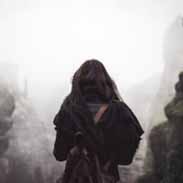Essay Summary of AP World History Unit 1 Review – Flashcards
Unlock all answers in this set
Unlock answersquestion
Nomads
answer
people with no permanent home; move from place to place in search of food,
question
Pastoral Society
answer
a society in which food is obtained primarily by raising and taking care of animals
question
foraging society
answer
Any human culture or society that depends on a combination of hunting, fishing, and gathering wild foods for subsistence.
question
domestication
answer
the taming of animals for human use, such as work or as food
question
food surplus
answer
extra food creation that allows people to engage in activities besides farming
question
job specialization
answer
a job composed of a small part of a larger task or process
question
barter
answer
exchange goods without involving money
question
civilization
answer
a society in an advanced state of social development (e.g., with complex legal and political and religious organizations)
question
polytheism
answer
belief in multiple Gods
question
ziggurat
answer
a rectangular tiered temple or terraced mound erected by the ancient Assyrians and Babylonians
question
code of hammurabi
answer
A collection of 282 laws. One of the first (but not THE first) examples of written law in the ancient world.
question
cuneiform
answer
an ancient wedge-shaped script used in Mesopotamia and Persia
question
the epic of gilgamesh
answer
first written document/story taking place in Mesopotamia and tells about the quest for immortality and the inevitability of death, and which includes a flood story similar to that of Noah's Ark. This epic is important because it illustrates the Israelites' same fear of death and desire for immortality...
question
pharaoh
answer
a king of ancient Egypt, considered a god as well as a political and military leader
question
heiroglyphics
answer
ancient Egyptian writing system using picture symbols for ideas or sounds
question
monotheism
answer
belief in a single God
question
akhenaten
answer
Egyptian pharaoh (r. 1353-1335 B.C.E.). He built a new capital at Amarna, fostered a new style of naturalistic art, and created a religious revolution by imposing worship of the sun-disk.
question
harrapa and Mohenjo-daro
answer
the largest Indus River civilizations, 3,500-4,000 people, organized, sewage systems, public wells
question
aryans
answer
nomads from Europe and Asia who migrated to India and finally settled; vedas in this time period suggest beginning of caste system
question
dravidians
answer
one of the main groups of people in India; probably descended from the Indus River culture that flourished at the dawn of Indian civilization over 4,000 yrs. ago
question
dharma
answer
In Hinduism, the duties and obligations of each caste
question
vedas
answer
Ancient Sanskrit writings that are the earliest sacred texts of Hinduism.
question
chandragupta maurya
answer
founder of Maurya dynasty; established first empire in Indian subcontinent; first centralized government since Harappan civilization
question
caste system
answer
a social structure in which classes are determined by heredity
question
brahmins
answer
Priests, at the top of the caste system which the Aryans made
question
untouchables
answer
lowest class of people in the caste system of Hinduism, do all the dirty work of society
question
varnas
answer
The social divisions of the Aryan Society that included from top to bottom: 1)priests (Brahmins), 2) rulers or warriors; 3) farmers, craftspeople, traders; 4) workers and servants (Sudras)
question
karma
answer
(Hinduism and Buddhism) the effects of a person's actions that determine his destiny in his next incarnation
question
Reincarnation
answer
the Hindu or Buddhist doctrine that person may be reborn successively into one of five classes of living beings (god or human or animal or hungry ghost or denizen of hell) depending on the person's own actions
question
moksha
answer
The Hindu concept of the spirit's 'liberation' from the endless cycle of rebirths.
question
nirvana
answer
(Hinduism and Buddhism) the beatitude that transcends the cycle of reincarnation
question
siddhartha gautama
answer
founder of Buddism; born a prince; left his father's wealth to find the cause of human suffering; also know as Buddha
question
four noble truths
answer
1) All life is full of suffering, pain, and sorrow. 2) The cause of suffering is nonvirtue, or negative deeds and mindsets such as hated and desire. 3) The only cure for suffering is to overcome nonvirture. 4) The way to overcome nonvirtue is to follow the Eightfold Path
question
asoka
answer
grandson of Chandragupta; most honored emperor for his commitment to spreading peace and prosperity to all; was buddhist but accepted other religions; decline came after his death
question
missionaries
answer
people who work to spread their religious beliefs
question
oracle bones
answer
animal bones carved with written characters which were used for telling the future
question
bronze metallurgy
answer
copper and tin combined to make Bronze, Shang completely controlled bronze production.
question
mandate of heaven
answer
a political theory of ancient China in which those in power were given the right to rule from a divine source
question
dynastic cycle
answer
the historical pattern of the rise, decline, and replacement of dynasties
question
era of warring states
answer
The period of Chinese history between c. 500 and 220 B.C.E. characterized by the breakdown of the central government and feudal war.
question
Confucius
answer
chinese philospher and teacher; his beliefs,known as confusoinism greatly influenced chinese life
question
main ideas of confucianism
answer
-people are essentially good but need good leadership examples -filial piety -ability to rise above one's station in life through education -confucius sought to work for rulers and advise them on good governance -five relationships: 1) ruler to ruled 2) father to son 3) husband to wife 4) older brother to younger brother 5) friend to friend
question
filial piety
answer
in Confucian thought, one of the virtues to be cultivated, a love and respect for one's parents and ancestors
question
dao
answer
The proper way Chinese kings were expected to rule under the mandate of heaven.
question
legalism
answer
Chinese philosophy developed by Hanfeizi; taught that humans are naturally evil and therefore need to be ruled by harsh laws



